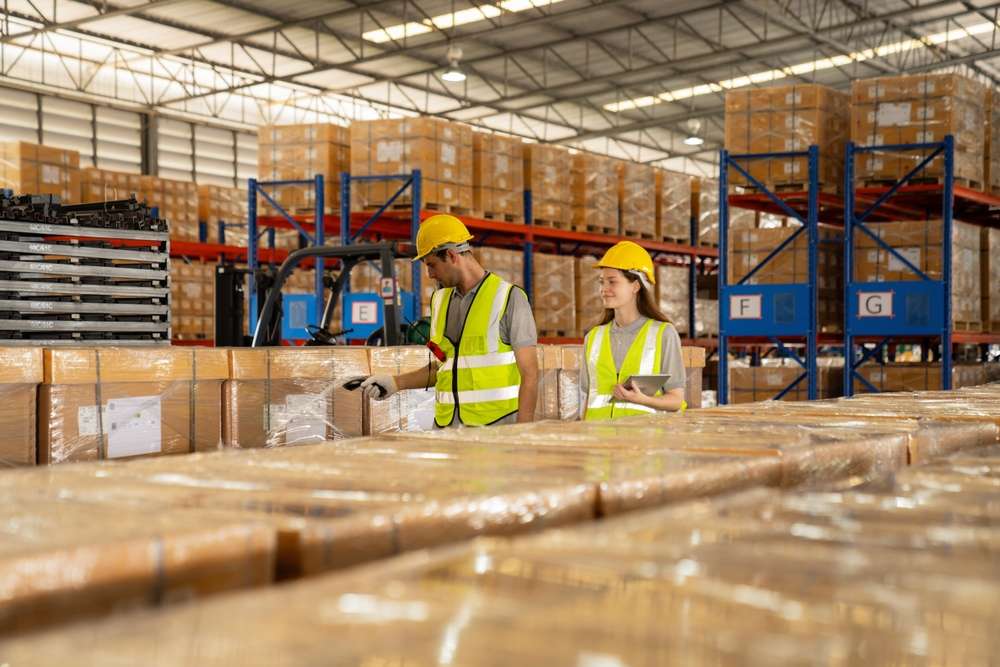Packaging Industry Careers: Opportunities in Manufacturing and Logistics
Discover the essential role of packaging professionals in today's global supply chain. From entry-level positions to advanced career paths, the packaging industry offers diverse opportunities in manufacturing and logistics. Learn about the skills, qualifications, and working conditions that define this crucial sector, and explore how you can build a rewarding career in product packaging and distribution.

The Vital Role of Packaging Professionals
In today’s interconnected global economy, the packaging industry serves as a critical link between manufacturers and consumers. Packaging professionals are responsible for ensuring products are safely and efficiently prepared for transport, storage, and delivery. This essential function spans various sectors, including food processing, electronics, pharmaceuticals, and consumer goods.
Key Responsibilities in Packaging Roles
Packaging jobs encompass a wide range of duties, all centered around the proper handling and preparation of products. Some core responsibilities include:
- Product assessment and protection: Evaluating items to determine the most suitable packaging methods
- Material selection: Choosing appropriate packaging materials based on product requirements
- Secure packaging: Carefully wrapping, boxing, or crating items to prevent damage during transit
- Accurate labeling: Marking packages with essential information such as contents, destination, and handling instructions
- Equipment operation: Using and maintaining packaging machinery and tools
- Workspace management: Keeping the packing area clean, organized, and efficient
- Compliance: Adhering to safety protocols and quality control standards
The specific tasks may vary depending on the industry, company size, and product type. However, these core functions remain consistent across most packaging roles.
Essential Skills and Qualifications
While formal education requirements for entry-level packaging jobs are often minimal, certain skills and attributes can significantly enhance an individual’s success in this field:
- Precision and attention to detail
- Physical endurance and strength
- Manual dexterity and hand-eye coordination
- Basic mathematical aptitude
- Ability to follow instructions meticulously
- Strong teamwork and communication skills
- Effective time management and ability to meet deadlines
Many employers provide on-the-job training for entry-level positions. However, a high school diploma or equivalent is often preferred. For those looking to advance their careers, certifications in areas such as forklift operation, hazardous materials handling, or specific packaging technologies can be valuable assets.
Finding Opportunities in the Packaging Industry
Packaging professionals are in demand across various settings:
- Manufacturing facilities
- Warehouses and distribution centers
- E-commerce fulfillment operations
- Food processing plants
- Pharmaceutical packaging units
- Logistics and shipping companies
Job seekers can explore opportunities through multiple channels, including online job boards, company career pages, temporary staffing agencies, and local employment offices. Networking within the manufacturing and logistics sectors can also uncover hidden job opportunities.
Working Conditions in Packaging Roles
The work environment for packaging professionals can vary, but common characteristics include:
- Physical demands: Regular standing, lifting, and movement throughout shifts
- Fast-paced atmosphere: Often involving assembly line work or production quotas
- Shift flexibility: Potential for varied work hours, including nights and weekends
- Indoor settings: Typically climate-controlled environments
- Safety focus: Emphasis on proper use of protective equipment and adherence to safety protocols
- Task repetition: Many roles involve performing similar actions consistently
Prospective employees should consider these factors when evaluating job opportunities and discuss specific working conditions during the application process.
Career Advancement in Packaging
While entry-level packaging jobs provide a solid starting point, there are numerous opportunities for career growth:
- Team leadership: Progressing to supervisory roles overseeing packaging operations
- Quality assurance: Transitioning into roles focused on maintaining product and packaging standards
- Inventory management: Leveraging packaging knowledge in stock control positions
- Logistics coordination: Expanding into broader supply chain management roles
- Production planning: Utilizing packaging expertise in scheduling and operational planning
- Training and development: Becoming an instructor for new packaging professionals
- Specialization: Developing expertise in specific packaging technologies or materials
Advancing in a packaging career often requires demonstrating reliability, efficiency, and adaptability. Some professionals may pursue additional education or certifications to qualify for higher-level positions within the manufacturing or logistics sectors.
The Future of Packaging Careers
As global trade continues to expand and e-commerce becomes increasingly prevalent, the demand for skilled packaging professionals is likely to grow. The industry is also evolving with new technologies and sustainable practices, creating opportunities for innovation and specialization.
For those seeking a stable career with room for growth, the packaging industry offers a solid foundation. From entry-level positions to advanced roles in logistics and supply chain management, packaging professionals play a crucial part in ensuring products reach consumers safely and efficiently. As the global economy continues to rely on the movement of goods, careers in packaging are positioned to remain an integral part of the employment landscape for years to come.






